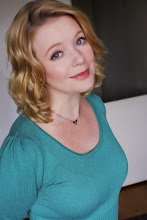First, I want to extend my thanks to my work buddy Anna for A) recommending this book and B) lending me her copy. I tend not to read young adult fiction because honestly, it's been a while since I've been a member of the target audience. Even when I was, I was a bit of an oddnik who spent her time with fellow oddniks, so things designed to appeal to the masses in my age group generally did not appeal to me. It wasn't any kind of judgement against the genre or the people who dug it, I just didn't feel like I could really relate to the stories being sold. When Anna lent me John Green's Looking for Alaska, I wasn't entirely convinced that the book would speak to me on the same level it spoke to a friend several years my junior. I'm still not sure it did. I can say that I did enjoy it immensely, and became more involved and inspired by the story than I expected to.
Perhaps this is because the narrator is not a typical American teen. He is exceptionally bright, a little eccentric, and struggles with social awkwardness. Dissatisfied with being the token friendless nerd at his public high school, he requests to be sent to a boarding school, so he may seek out his "Great Perhaps." Once there, it is not long before he falls in with a tightly knit circle of exceptionally bright, mildly eccentric teens like himself.
The first half of the book sets up these characters and their relationships in a romanticized, almost sentimental light, but the worldliness and humor of the teens prevents it from becoming cloying. I was relieved that the author didn't talk down to an audience younger than himself, that he expected his readers to be familiar with his obscure literary/historical/philosophical references (or at least to look them up), and that he treated smoking, swearing, drinking, and teen sex with a respectful dose of non-judgemental realism.
Around the halfway mark, the story takes a sharp, unexpected turn as the students experience a heartbreaking tragedy. The book about an exceptional group of young friends becomes a tale that examines grief and loss with an emotional honesty and rawness that would give Six Feet Under a run for its money. As erudite as these kids are, they suddenly realize how green they are emotionally, and they struggle for a frame of reference to help them cope with a wholy unfamiliar form of pain.
In the course of their dealing with this tragedy, the narrator takes wisdom from his friends and from what he has learned through books and his teachers. He is far from an apple shiner (school pranks are more glorified in this book than the academic structure itself), and he is equipped with a healthy sense of irreverence. However, his intellectual curiosity, his philosophical leanings, and his ability to apply new knowledge to his day to day life help guide him into an emotional and spiritual maturity that would put scholars and poets twice his age to shame. Like many characters in the film Wings of Desire, he bears a realistic worldliness infused with the ability to ask the kind of questions that mostly children and angels ask, but forget about as they grow up and/or become assimilated into their surrounding culture. The narrator balances on a cusp of earthly concerns and desires and otherworldly ideas. This balance makes the book not just moving, but inspiring as well, for readers of any age.
Subscribe to:
Post Comments (Atom)

Kate, i thought this review was quite apt. when you mentioned how John Green dealt with some of the issues in his book, i thought of the following anecdote (and figured it was more appropriate to post here than on Facebook): my friend Gigi, who is also a young adult novelist, was at a writers' conference with Judy Blume and John Green. at this point in time, Looking for Alaska had just recently been released, as had Gigi's first novel, Claiming Georgia Tate. in any case, there was much discussion about the flack Gigi's book had received given some of its subject matter (that isn't hugely featured in the book, i might add)... the book had been piled onto a list of mostly-trashy books under the heading, "What Are Your Kids Reading?" in any case, John Green was talking about how he was getting a lot of negative feedback about the blow job parts of Looking For Alaska. which, again, are not the focus of the story and are really quite short. not to mention, they're teens for crying out loud! anyway, John Green would be glad to know you weren't offended. and how amusing is it to imagine him, Judy Blume, and another YA author sitting around a table in a cafeteria saying the word "blow job" all the time? actually, i think Gigi said they ended up saying "BJ" because they didn't want to get in trouble. ha!
ReplyDelete-Anna C.